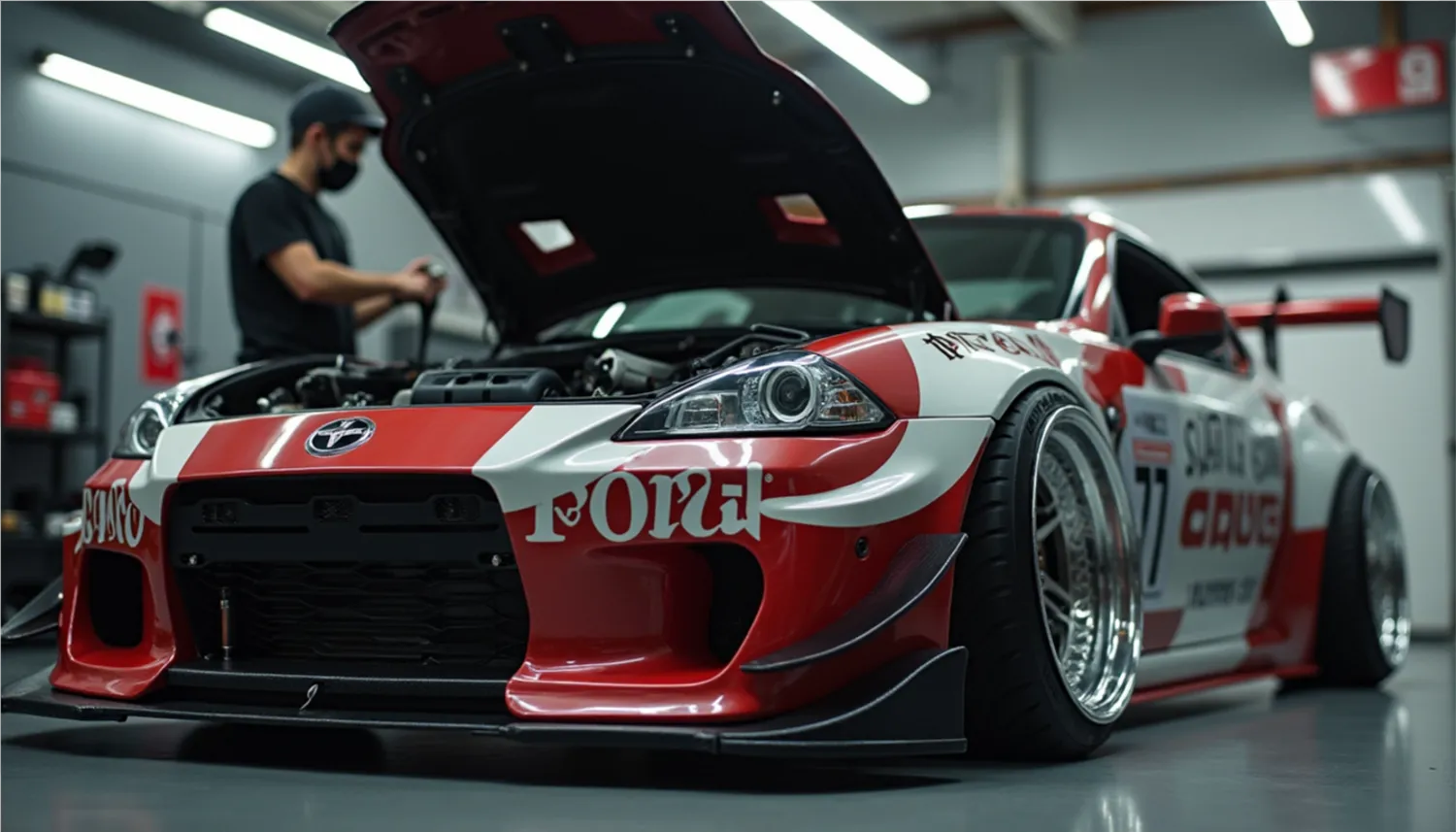
Car customisation is an exciting way to make your vehicle uniquely yours. Whether you’re upgrading your exhaust, fitting a body kit, installing underglow lights, or tweaking engine performance, modifying your car can be fun, functional, and stylish. But in the UK, not every modification is legal—or safe.
If you’re thinking of personalising your car, it’s essential to know where the law stands. From MOT compliance to DVLA regulations and insurance obligations, understanding what’s allowed could save you money, legal trouble, and even your licence.
In this post, we’ll explore which car customisations are legal in the UK, which ones could get you into hot water, and what steps you need to take to stay road-legal while still standing out on the street.
Why Car Modification Laws Matter
The UK government, through agencies like the Driver and Vehicle Standards Agency (DVSA) and DVLA, enforces strict rules to ensure road safety, environmental standards, and fair insurance practices. Modifications that compromise vehicle safety, alter emissions, or misrepresent a vehicle's true performance can be illegal—or require official inspection and notification.
So, before you bolt on that spoiler or remap your engine, make sure you’re not crossing a legal line.
Common Legal Modifications (When Done Correctly)
Here are some popular car mods that are generally legal in the UK, as long as they’re done properly:
1. Alloy Wheels And Tyres
Swapping your wheels is a popular and safe mod. Just make sure:
- They are approved sizes for your car model.
- They don’t rub against the bodywork.
- Tyres meet legal tread depth (1.6mm minimum) and speed rating requirements.
2. Window Tinting
Legal with some restrictions:
- Front windscreen must let in at least 75% of light.
- Front side windows must allow 70% of light through.
- There are no restrictions on rear window tints.
Too dark, and you risk a prohibition notice, a fine, or even invalid insurance.
3. Cosmetic Body Kits And Spoilers
As long as body kits:
- Are securely fitted
- Do not obstruct lights or registration plates
- Don’t pose a danger to pedestrians or cyclists
...then you're good to go. But extreme designs may affect your MOT or attract police attention.
4. Interior Mods (Steering Wheels, Seats, Lighting)
Changing your gear knob, dash trim, or interior lighting is fine. Just ensure that:
- Seats and belts remain roadworthy and safely secured.
- Airbags and safety systems are not tampered with.
- Interior lights don’t impair visibility or dazzle other drivers.
Modifications That Are Legal with Conditions
These mods sit in a legal grey area or require additional action to stay compliant:
1. Exhaust Upgrades
Aftermarket exhausts are legal if they meet noise and emissions standards. UK law says:
- Noise must not exceed that of the original system.
- Catalytic converters (for petrol cars made after 1992) and DPFs (for diesel cars) must not be removed.
However, too loud = MOT failure + police fines.
2. Engine Remapping / Tuning Boxes
Legal if emissions and performance stay within approved limits. However:
- You must declare remaps to your insurer.
- Emissions changes may cause MOT failure.
- Modifications must not void the ECU safety settings.
3. Underglow Lighting
Not illegal, but:
- Cannot flash, rotate, or be red/blue (reserved for emergency vehicles).
- Bulbs must be concealed to avoid dazzling others.
- Must not be used while driving (best kept for shows or private land).
4. Number Plates
Custom fonts, colours, spacing, or LED backlighting are not legal for road use. Plates must:
- Be white (front) and yellow (rear) with black characters.
- Use BS AU 145e-compliant materials.
- Have no alterations in spacing or logos unless pre-approved.
Breaking number plate laws can result in a £1,000 fine and MOT failure.
Illegal Or Problematic Modifications
These customisations can land you in legal trouble, cause your car to fail its MOT, or invalidate your insurance:
- Removing catalytic converters or DPFs
- Lifting or lowering suspension beyond safe limits
- Overly loud exhausts (above 74 decibels for most cars)
- Tinting front windscreen below legal limits
- Illegal lighting colours (red at front, blue flashing lights, etc.)
- Misrepresenting badge or engine type
- Tampering with odometers or emissions equipment
If you’re caught with a dangerous or illegal modification, the police may issue a Vehicle Defect Rectification Notice (VDRN) or a prohibition notice, and your car could be impounded.
Do You Have To Inform The DVLA Or Insurer?
Yes—failing to declare modifications can invalidate your insurance. Most insurers require full disclosure of:
- Performance enhancements (engine remaps, turbochargers)
- Cosmetic changes (body kits, wraps, spoilers)
- Wheel and suspension changes
- Interior upgrades (steering wheel, roll cages)
Some modifications also require DVLA notification and V5C (logbook) updates—such as engine swaps, colour changes, or body style conversions.
Break The Mould, Not The Law
Customising your car is one of the best ways to express your style and enhance performance—but in the UK, it's essential to play by the rules. Always consider MOT requirements, emissions standards, and insurance disclosure before modifying your vehicle.
A good rule of thumb? If in doubt, ask—whether that’s your mechanic, your insurer, or a specialist modification shop.
Because nothing ruins a great-looking car faster than a £1,000 fine, MOT failure, or invalid policy.
Thinking of customising your car? Get expert advice on modifications that are stylish, safe, and street-legal. Your vehicle deserves to turn heads—for all the right reasons.